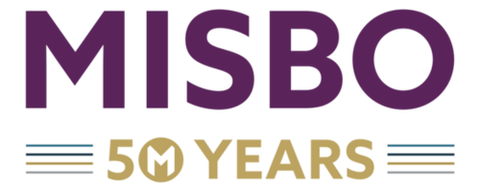Transforming Education with Artificial Intelligence: A Promising Future
In the past few years, the rise of artificial intelligence (AI) has revolutionized numerous industries, including education. As technology continues to evolve, educational institutions are harnessing the power of AI to enhance learning experiences, personalize instruction, and improve student outcomes. In this blog, we delve into the pivotal role of AI in education and explore several key applications that are reshaping the landscape of learning, paving the way for an exciting future.
PERSONALIZED LEARNING

One of the most significant contributions of AI in education is the ability to personalize learning experiences for students. Traditional one-size-fits-all teaching approaches often fail to address the unique needs and learning styles of individual students. However, AI-powered adaptive learning systems can analyze vast amounts of data to create tailored learning paths, providing students with targeted content and interventions based on their strengths, weaknesses, and progress. These systems adapt in real-time, enabling students to learn at their own pace.
AI TUTORING AND SUPPORT
AI-driven intelligent tutoring systems have the potential to revolutionize the way students receive guidance and support. These systems leverage machine learning algorithms to analyze student interactions, identify misconceptions, and provide timely feedback. By offering personalized hints, explanations, and practice exercises, intelligent tutors can assist students in mastering complex concepts and help them overcome challenges more effectively. Additionally, these systems can alleviate the burden on teachers by automating routine tasks, allowing them to focus on higher-order instruction and individualized support.
STREAMLINE ADMINISTRATIVE TASKS

AI technologies are not limited to improving student learning; they can also streamline administrative tasks and enhance operational efficiency within educational institutions. For example, AI-powered chatbots can handle routine inquiries, freeing up administrative staff to address more complex issues. Machine learning algorithms can also assist in data analysis, enabling educators and administrators to gain valuable insights into student performance, identify areas for improvement, and make data-driven decisions to optimize educational processes.
create educational content
AI algorithms are increasingly being employed to create and curate educational content. Natural language processing (NLP) techniques allow for the generation of interactive and engaging content, such as automated quizzes, exercises, and simulations. AI can also assist in curating relevant educational resources from vast online repositories, ensuring that educators have access to high-quality materials that align with their curriculum objectives. By automating content creation and curation, AI supports educators in delivering more engaging and up-to-date learning experiences.
IDENTIFY AT-RISK STUDENTS
Identifying students who may be at risk of falling behind or experiencing academic difficulties is crucial for timely intervention and support. AI algorithms can analyze a wide range of data, including academic performance, attendance records, and behavioral patterns, to identify early warning signs. By detecting potential issues, educators can intervene proactively and provide targeted interventions to support struggling students, ultimately improving their chances of success.
intervention and support. AI algorithms can analyze a wide range of data, including academic performance, attendance records, and behavioral patterns, to identify early warning signs. By detecting potential issues, educators can intervene proactively and provide targeted interventions to support struggling students, ultimately improving their chances of success.
Artificial intelligence has the potential to revolutionize education by personalizing learning experiences, enhancing administrative efficiency, and providing valuable insights to educators. As educational institutions continue to embrace AI technologies, it is essential to address concerns around data privacy, equity, and the need for human interaction in the learning process. By harnessing the power of AI responsibly and thoughtfully, we can create a future where education is more inclusive, engaging, and tailored to the needs of every learner.
Resources and More Materials on AI:
- Using AI in Human Resources: The Promise – and the Pitfalls
- US AI Ethics: A new imperative for businesses, boards, and c-suites
- Bridging the Gap between Human and Artificial
- Leading your Organization to Responsible AI
- How to Prepare for an Automated Future
- Building Digital Trust
- Confronting the Risks of Artificial Intelligence
- As Artificial Intelligence increases Ethics Policies are Needed
- 5 Best Practices for Implementing AI in the Workplace
